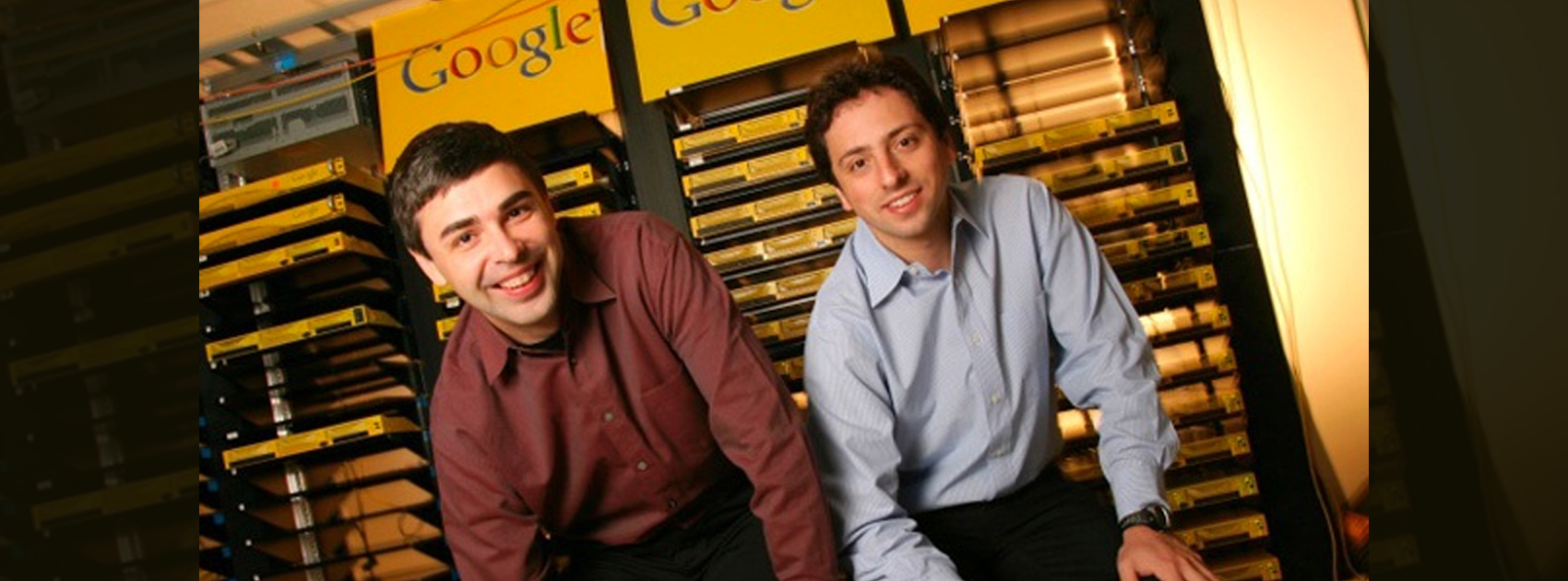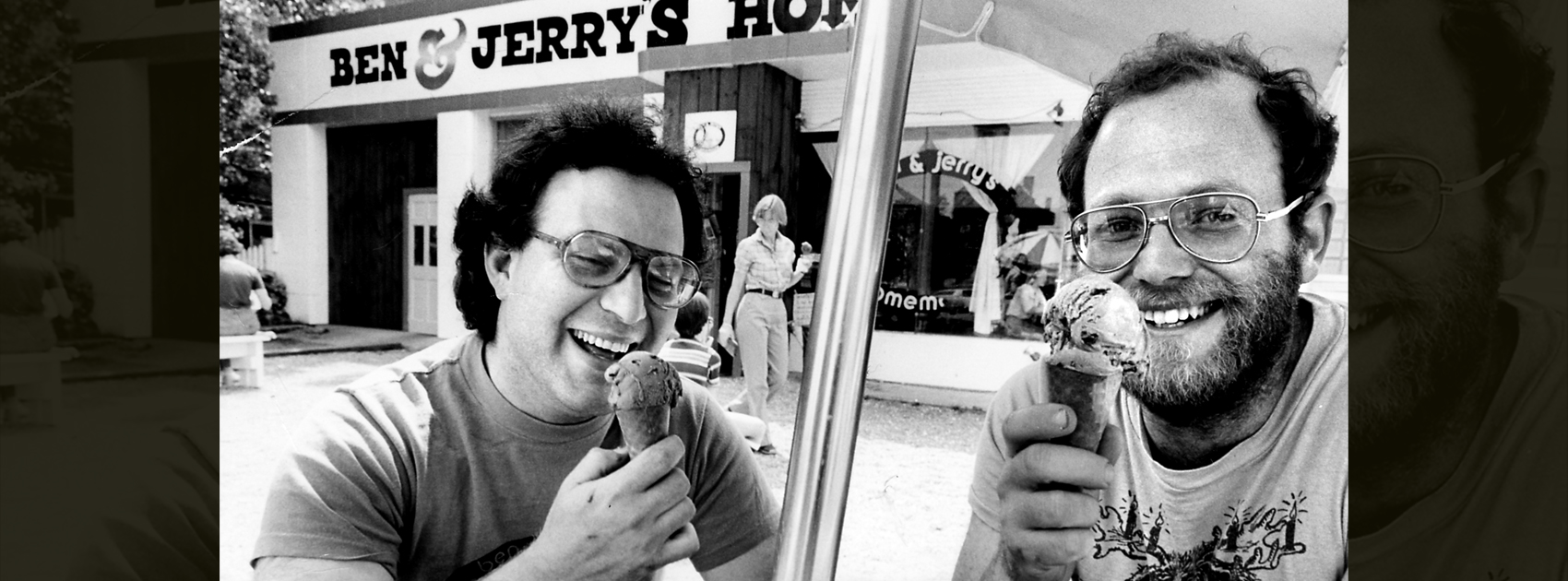Stories
Friends Who Founded Companies Together

Starting a company is a really difficult task and it becomes incredibly hard if you are doing it alone. Having a co founder can make the task a little simpler, especially if it is one of your closest friends. Many business experts warn against starting a business with friends, however, the success of the companies mentioned below proved such opinions wrong.
Friends who founded companies together
1) Airbnb
 The hugely popular online platform was founded by three roommates, Nathan Blecharczyk, Joe Gebbia and Brian Chesky. Nathan Blecharczyk, who moved to San Francisco, used Craigslist to find a roommate, who turned out to be Joe Gebbia. Brian Chesky, who was Gebbia’s college friend, later moved in with Blecharczyk and Gebbia and the three became close friends. The idea of Airbnb was conceived after the trio realised there is a shortage of hotels in San Francisco. They built a website which allowed people to rent out spaces in other people’s apartments. They also turned their own apartment into a lodging by putting an air mattress in their living room. Eleven years after its launch, Airbnb, which turned its founders into billionaires, is still one of the most used sites in the world.
The hugely popular online platform was founded by three roommates, Nathan Blecharczyk, Joe Gebbia and Brian Chesky. Nathan Blecharczyk, who moved to San Francisco, used Craigslist to find a roommate, who turned out to be Joe Gebbia. Brian Chesky, who was Gebbia’s college friend, later moved in with Blecharczyk and Gebbia and the three became close friends. The idea of Airbnb was conceived after the trio realised there is a shortage of hotels in San Francisco. They built a website which allowed people to rent out spaces in other people’s apartments. They also turned their own apartment into a lodging by putting an air mattress in their living room. Eleven years after its launch, Airbnb, which turned its founders into billionaires, is still one of the most used sites in the world.
2) Google
 One of the biggest technological companies in the world, Google was founded by two PhD students, Larry Page and Sergey Brin. Page met Brin for the first time at Stanford University, during a campus tour for doctoral students. Not a big fan of each other in the beginning, they became friends while working on a research project together. Their project, The Anatomy of a Large-Scale Hypertextual Web Search Engine, became the foundation of what would soon be called Google. Co founded in 1998, the growth of Google made Larry Page and Sergey Brin two of the richest people in the world.
One of the biggest technological companies in the world, Google was founded by two PhD students, Larry Page and Sergey Brin. Page met Brin for the first time at Stanford University, during a campus tour for doctoral students. Not a big fan of each other in the beginning, they became friends while working on a research project together. Their project, The Anatomy of a Large-Scale Hypertextual Web Search Engine, became the foundation of what would soon be called Google. Co founded in 1998, the growth of Google made Larry Page and Sergey Brin two of the richest people in the world.
3) Ben & Jerry’s
 This hugely successful ice cream manufacturing company was founded by Ben Cohen and Jerry Greenfield. Both Cohen and Greenfield were friends since childhood, having met each other during their seventh grade gym class. They both shared a mutual love for food, which prompted them to take a correspondence course in ice cream making. After completing the course, they started their first ice cream shop together in 1978, with an investment of $ 12,000. Forty one years after starting the shop, Ben & Jerry’s is a world renowned million dollar company.
This hugely successful ice cream manufacturing company was founded by Ben Cohen and Jerry Greenfield. Both Cohen and Greenfield were friends since childhood, having met each other during their seventh grade gym class. They both shared a mutual love for food, which prompted them to take a correspondence course in ice cream making. After completing the course, they started their first ice cream shop together in 1978, with an investment of $ 12,000. Forty one years after starting the shop, Ben & Jerry’s is a world renowned million dollar company.
4) Warby Parker
 Warby Parker is an online retailer of prescription glasses and sunglasses, started by Neil Blumenthal, Dave Gilboa, Andrew Hunt and Jeffrey Raider. The four became friends during grad school at the Wharton School of the University of Pennsylvania and shared a common frustration towards expensive prescription glasses. The four friends then started a company to sell highly quality and inexpensive glasses online and made a pact of not letting their friendship get affected in any way due to business. Launched in 2010, Warby Parker was valued at $ 1.75 billion in 2018, with a funding of approximately $ 300 million.
Warby Parker is an online retailer of prescription glasses and sunglasses, started by Neil Blumenthal, Dave Gilboa, Andrew Hunt and Jeffrey Raider. The four became friends during grad school at the Wharton School of the University of Pennsylvania and shared a common frustration towards expensive prescription glasses. The four friends then started a company to sell highly quality and inexpensive glasses online and made a pact of not letting their friendship get affected in any way due to business. Launched in 2010, Warby Parker was valued at $ 1.75 billion in 2018, with a funding of approximately $ 300 million.
The success stories of these friends who became business partners are perfect inspiration for people who want to start their entrepreneurial journey with their friends.
Which of these stories about friends who founded companies together impressed you the most? Let us know in the comments below.
Entrepreneur Stories
Zupee Bolsters Short-Video Play with Vertical TV Acquisition Under INR 40 Cr

Delhi NCR-based gaming startup Zupee has acquired Mumbai-based microdrama platform Vertical TV in a deal valued under INR 40 Cr. This move strengthens Zupee Studio, its short-video arm launched in September 2025, by integrating Vertical TV’s expertise in bite-sized dramas like romance and thrillers.
Facing challenges from India’s 2025 real-money gaming ban, Zupee valued at $1 Bn after raising $120 Mn has pivoted to non-gaming content, including recent layoffs of 40% of its workforce. The acquisition builds on its November 2025 purchase of Australian AI firm Nucanon for interactive storytelling, targeting its 200 Mn+ users with engaging, mobile-first formats.
This deal underscores the rising microdrama trend in India, helping Zupee diversify amid regulatory pressures and compete in the short-video space dominated by quick, shareable content for on-the-go audiences.
Videos
T.N. Seshan: The Fearless Reformer Who Redefined Indian Democracy

T.N. Seshan’s name stands tall in India’s history as the man who transformed the nation’s electoral system with extraordinary courage and integrity. Born in 1932 in Kerala, Seshan grew up with values of discipline, education, and service to the nation — virtues that shaped his illustrious journey. From his early brilliance at Madras Christian College to his advanced studies in public administration at Harvard University, Seshan’s path reflected rare determination and intellect. Joining the Indian Administrative Service in 1955, he built a reputation as a no‑nonsense officer committed to efficiency and honesty, serving in key roles such as Secretary of Defense and overseeing vital national programs.
As the Chief Election Commissioner of India in 1990, T.N. Seshan sparked a new era of electoral integrity. In a system once marred by corruption, violence, and malpractice, Seshan brought order, fear, and respect through his groundbreaking reforms. He introduced voter ID cards, imposed strict spending limits on campaigns, and insisted on transparency at every level of the election process. Despite criticism from political circles that labeled him dictatorial, his relentless pursuit of fairness empowered every citizen to vote fearlessly. Under his leadership, the Election Commission became a symbol of strength and integrity in Indian democracy.
Seshan’s passing in November 2019 marked the end of an era, but his message continues to resonate across generations. Leaders from every corner of the country mourned the loss of the man who restored faith in free and fair elections. His enduring legacy reminds us that true leadership lies not in wielding power, but in serving people with honesty, courage, and conviction. T.N. Seshan’s life remains a timeless inspiration a reminder that democracy thrives only when its citizens are vigilant, responsible, and fearless.
Entrepreneur Stories
Indian Man Quits JPMorgan, Takes 70% Pay Cut to Launch $6 Million Startup

Leaving behind a high-paying job at JPMorgan, an Indian entrepreneur embraced a 70% salary cut to pursue true purpose and passion in the startup world. Disenchanted with what he described as a “robotic” corporate routine, he sought meaningful work that made a real impact. This pivotal decision marked the beginning of his new journey, one focused on value creation rather than titles and corporate perks.
Powered by resilience and fresh perspective, the entrepreneur launched his own startup, prioritizing innovation and hands-on solutions. The road was challenging, but his vision resonated with the market: the startup quickly gained traction and raised $6 million—an impressive acknowledgement of its potential in a competitive landscape. Every hard lesson from early setbacks and bootstrapping paid off in real customer growth and investor confidence.
Today, his journey stands as an inspiring example for professionals seeking authentic success outside the corporate grind. By trading comfort for creative freedom, he grew a venture that solves important problems, generates jobs, and builds wealth beyond just salary. For ambitious founders, his story highlights the power of risk-taking, adaptability, and relentless focus on impact in India’s thriving startup ecosystem.













Http://Boyarka-Inform.com/
June 7, 2025 at 6:57 pm
Ahaa, its fastidiou conversation concerning thios
post here at this weblog, I have read all that, so at this
time mme also commenting here. http://boyarka-Inform.com/
Http://Boyarka-Inform.com/
June 7, 2025 at 6:57 pm
Ahaa, its fastidious conversation concerning this post
here at this weblog, I have read all that, so at this time
me also commenting here. http://boyarka-Inform.com/
reneraigo
June 24, 2025 at 11:48 pm
Восстановление бампера автомобиля — это востребованная услуга, которая позволяет обновить заводской вид транспортного средства после мелких повреждений. Современные технологии позволяют исправить царапины, трещины и вмятины без полной замены детали. При выборе между ремонтом или заменой бампера [url=https://telegra.ph/Remont-ili-zamena-bampera-05-22]https://telegra.ph/Remont-ili-zamena-bampera-05-22[/url] важно учитывать уровень повреждений и экономическую целесообразность. Профессиональное восстановление включает выравнивание, грунтовку и покраску.
Смена бампера требуется при серьезных повреждениях, когда реставрация бамперов неэффективен или невозможен. Цена восстановления определяется от типа материала изделия, масштаба повреждений и марки автомобиля. Полимерные элементы поддаются ремонту лучше железных, а современные композитные материалы требуют особого оборудования. Грамотный ремонт расширяет срок службы детали и поддерживает заводскую геометрию кузова.
Не сомневайтесь рассчитывать на меня для поддержки по вопросам Ремонт бампера своими руками пайка шпаклевка грунтовка – стучите в Телеграм alr67
Kuwin
November 6, 2025 at 7:50 am
kuwin sở hữu kho game đa dạng từ slot đến trò chơi bài đổi thưởng, mang đến cho bạn những giây phút giải trí tuyệt vời.
MM88
November 10, 2025 at 2:37 am
Khám phá thế giới giải trí trực tuyến đỉnh cao tại MM88, nơi mang đến những trải nghiệm cá cược thể thao và casino sống động.
谷歌外推
November 11, 2025 at 4:02 am
采用高效谷歌外推策略,快速提升网站在搜索引擎中的可见性与权重。谷歌外推
谷歌蜘蛛池
November 14, 2025 at 7:15 am
利用强大的谷歌蜘蛛池技术,大幅提升网站收录效率与页面抓取频率。谷歌蜘蛛池
GO88
November 15, 2025 at 4:31 pm
Tham gia cộng đồng game thủ tại Go88 để trải nghiệm các trò chơi bài, poker phổ biến nhất hiện nay.
iwin
November 21, 2025 at 5:56 pm
iwin – nền tảng game bài đổi thưởng uy tín, nơi bạn có thể thử vận may và tận hưởng nhiều tựa game hấp
J88
December 1, 2025 at 4:22 am
Đến với J88, bạn sẽ được trải nghiệm dịch vụ cá cược chuyên nghiệp cùng hàng ngàn sự kiện khuyến mãi độc quyền.
Venlo Casino Cashback Angebot
December 20, 2025 at 9:00 am
Die Spielbank in Ostwestfalen verzeichnete in den letzten Jahren einen kontinuierlichen Anstieg der Besucherzahlen und besitzt dank seines
modernen Unterhaltungsangebots mitsamt großen Live-Events
eine überregionale Strahlkraft. Mit dieser strategischen Entscheidung reagiert der Spielbankenbetreiber auf
die stetig wachsenden Anforderungen und Aufgabenfelder im Management des Casinos.
Beatrix Pikus und Joachim Pollok gestalten als neue Spielbankdirektion gemeinsam die Zukunft des Merkur Casino Bad Oeynhausen. Unter dem Motto »Las Vegas« lebt das Casino Bad Oeynhausen den »American Way
of Life«. Das Casino Bad Oeynhausen heißt Euch im modernen Entertainment Center MAGICS willkommen – gegenüber dem Werre-Park, dem größten Einkaufscenter in Ostwestfalen. 🥠 Ein Glückskeks wie kein anderer.
Das Unternehmen betreibt die Gastronomie in den Spielbanken mit Restaurants, Bars und Catering.
Seit der Übernahme durch die Gauselmann-Gruppe firmiert sie unter
Merkur-Entertainment GmbH. 2002 wurde die Tochterfirma WestSpiel-Entertainment GmbH
(WSE) ins Leben gerufen. Neuer Betreiber wurde die SIM Spielbanken Investitions-Beteiligungs und Management GmbH & Co KG, eine Tochter der Deutschen Sporthilfe
und Novomatic AG. Seit der Aufspaltung der WestLB im
Jahr 2002 in eine Geschäftsbank und in die NRW.Bank als Förderbank
gehörte es zur NRW-Bank.
References:
https://online-spielhallen.de/alles-zur-sg-casino-auszahlung-schnell-sicher-und-unkompliziert/
Lex Casino Spiele
December 20, 2025 at 6:16 pm
Diese Multifunktionsautomaten können Spielern die Wahl zwischen verschiedenen Glücksspielen bieten,
von einfachen Würfelspielen bis hin zu komplexeren Kartenspielen wie Blackjack.
Durch das Bauen von Redstone-Spielautomaten können Schüler praktische Erfahrungen sammeln und komplexe technische Konzepte auf spielerische Weise erlernen. Sie fördern die Interaktion zwischen den Spielern und bieten einen Ort, an dem sich die Community treffen und gemeinsam
spielen kann. Solche Automaten steigern die Interaktivität und den Wiederspielwert erheblich, da sie eine Vielzahl
von Unterhaltungsmöglichkeiten bieten. Die Wahrscheinlichkeiten etwas zu gewinnen kann man über die Verteilung der Gegenstände in den Spendern einstellen. Eine zweite Reihe von Redstone-Lampen zeigen wie
voll die Truhe ist, denn wäre der Spender leer gäbe es ja nichts mehr zu gewinnen.
Lottomaschinen sollten so gebaut sein, sodass die Wahrscheinlichkeit für das Knacken des Jackpots ist.
Man wirft in der Regel als Tribut Smaragde in eine Truhe oder Trichter und löst damit die
Glücksspielmaschine aus. Das ganze kann natürlich nicht nur
als Gewinnspielautomat genutzt werden sondern auch als normaler
Zufallsgenerator der eben mehr möglichkeiten bietet als die Standart-Zufallsgeneratoren, an die Signale kann
man dann ja anschließen was man mag 😉
References:
https://online-spielhallen.de/meine-umfassenden-jet-casino-erfahrungen-ein-tiefer-einblick/
Avantgarde Casino Passwort vergessen
December 21, 2025 at 12:56 am
Da diese Informationen sich vor allen an deutschsprachige Spieler richten, empfehlen wir als Alternative auch das große Slots Angebot in den besten deutschen Online Casinos.
Die niederländischen Casinos bieten zudem oft spezielle Events und Turniere an, die das Spielerlebnis abwechslungsreicher gestalten und eine besondere
Atmosphäre schaffen. Eine lokale Spezialität ist das Spiel “Punto Banco”, eine Variante des Baccarat.
Niederländische Spieler schätzen besonders das amerikanische Roulette und verschiedene Poker-Varianten,
darunter Texas Hold’em. Besonders beliebt sind
die Casinos in Städten wie Amsterdam, Rotterdam und Utrecht, die eine breite Auswahl an Spielen anbieten.
Die Spielbank Valkenburg bietet eine breite Palette
an Tischspielen, die traditionelle Casino Klassiker mit besonderen Varianten verbindet.
Hier finden Besucher eine angenehme Spielumgebung, die durch ihre besondere Lage
und die umfangreiche Auswahl an Automatenspielen punktet.
Für die etwas abenteuerlustigen bietet Valkenburg zudem außergewöhnliche
Erfahrungen, wie beispielsweise Mountainbike-Touren durch die alten Mergelgruben. Mit seinen zahlreichen kulturellen Schätzen und seiner vielfältigen Historie verkörpert es das perfekte Zusammenspiel von Mensch und Natur
und zieht so Jedermann in seinen Bann. Als einzige
Höhenburg der Niederlande zieht sie mit ihrer majestätischen Silhouette
und den robusten Mauern, die zahlreiche Belagerungen überdauerten, Touristen aus
aller Welt an. Onlinespielcasino.de unterstützt den verantwortungsvollen Umgang mit Glücksspiel.
References:
https://online-spielhallen.de/zetcasino-deutschland-einloggen-spielen-auszahlen/
australian e-wallet casino sites
December 26, 2025 at 8:42 pm
Or use the direct line to Launceston taxi services at the Guest Services counter or Federal Rewards Club desk.
As a result of some of the new features, including a data loss prevention feature,
this edition remains one of the most beloved by users.
He enjoys exploring new apps, games, and tools, translating his findings into reviews
that are clear and accessible. Microsoft Word 2016
comes packed with features designed to streamline processes and bring teams together, saving you time and effort.
It offers a treasure trove of uses, including useful features like grammar, style suggestions, and
tools to enhance document layouts. This article about a hotel or resort
in Oceania is a stub.
Here you can choose from a wide range of fine dining, buffet all-you-can-eat and casual bistro and café options.
Just show your Federal Rewards Card when you pay or
play, and you could earn points towards accommodation, dining and many other
benefits. As Federal Rewards Club members, you will enjoy discounted accommodation rates and special offers at Country Club Tasmania and Wrest Point.
You’ll also access exclusive offers on our accommodation and dining experiences.
References:
https://blackcoin.co/bars-the-classic-slot-machine-theme/
casino vip perks
December 26, 2025 at 11:40 pm
Detailed game pages are available right from your account; read the
Cherry Red Slots review for specifics on paylines, coin sizes, and bonus rounds.
Try slots like Cherry Red Slots for a classic five-reel experience with 25
paylines and a 15-free-spin feature, or explore progressive and bonus-rich
options. The deposit minimum for most bonuses is $20 — make sure you select the correct method when qualifying for an offer.
Bitcoin options move quickly and are often paired with specific crypto promotions; traditional rails like
BPAY or Credit Cards remain reliable for instant deposits.
Fair Go uses non-sticky bonuses by default, meaning bonus funds are playable but tied to wagering requirements before withdrawal.
That offer is structured as 100% up to $200 per claim, redeemable five times
for a combined boost up to $1,000; wagering is 30x the deposit plus bonus (30x(D+B)).
Note that there’s also an FAQ page with solutions to some
of the common problems experienced by players. The casino offers
24/7 customer support services through the live chat feature, email address, and phone calls.
Now, let’s say you’ve found a new slot game at the casino and you are reluctant to place real money bets.
References:
https://blackcoin.co/10-deposit-casinos-australia-2025-the-ultimate-guide/
icqpro.com.br
December 29, 2025 at 3:49 am
online casino real money paypal
References:
icqpro.com.br
company09.giresvenin.gethompy.com
December 29, 2025 at 4:03 am
paypal casinos for usa players
References:
company09.giresvenin.gethompy.com
creator.chaakri.com
December 30, 2025 at 4:10 am
casino with paypal
References:
https://creator.chaakri.com/employer/the-best-new-online-casinos-in-australia-to-try-today/
www.lms.pidernegi.org
December 30, 2025 at 4:25 am
online australian casino paypal
References:
https://www.lms.pidernegi.org/employer/best-online-casinos-in-australia-2025-instant-withdrawal-casinos/
recommendedonlinecasinos
February 25, 2026 at 9:15 pm
逐玉2026 张凌赫田曦薇 高清古装甜宠权谋 海外华人高清在线 全球加速AI推荐